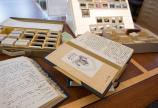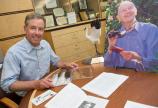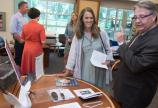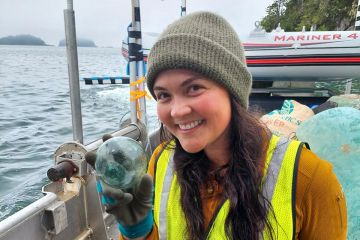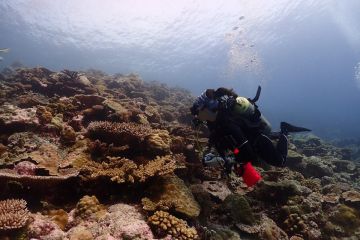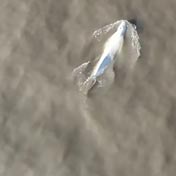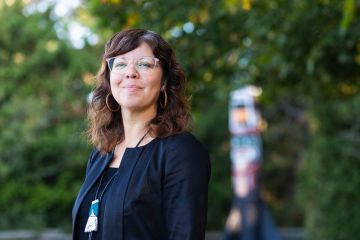The roots of Canadian ecology
- Susan Henderson
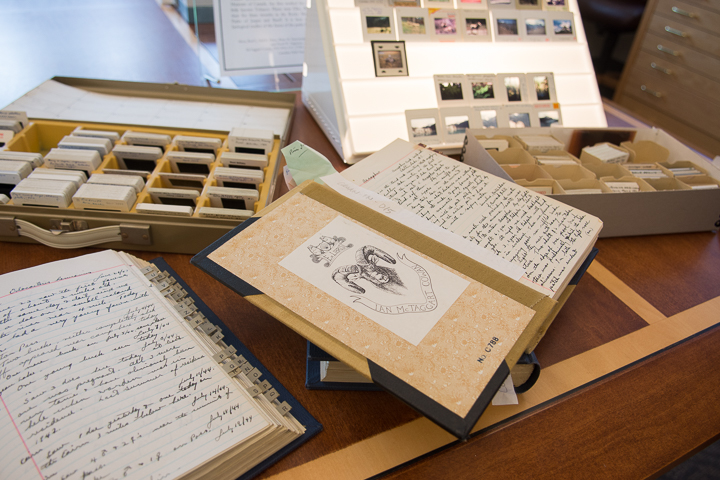
Ian McTaggart Cowan archive a living legacy for contemporary research
The launch of a digitization project and a new archive are a providing a powerful combination of resources for ecological researchers, on and off campus. The Ian McTaggart Cowan archive, recently donated by the Cowan family to UVic Special Collections and University Archives, contains materials from McTaggart Cowan’s remarkable 75-year career as one of Canada’s foremost wildlife biologists and conservationists.
Often referred to as the father of Canadian ecology, McTaggart Cowan—who passed away in 2010 at the age of 99—founded the first university wildlife department in Canada, and revolutionized the way North Americans perceived the natural world. His television nature-show programs in the 1950s and ‘60s made him a household name around the globe. He was also responsible for hiring a young David Suzuki, who followed in McTaggart Cowan’s TV footsteps. His two programs on national television in the ‘60s, The Living Sea and The Web of Life, prompted Suzuki to subsequently create The Nature of Things.
The McTaggart Cowan archive is rich in photographs, lecture notes, articles, books, correspondence, CBC TV footage of his nature-show programs, and field journals (47 of his and 14 of his colleagues and students).
It is the digitization of McTaggart Cowan’s field journals by UVic Libraries that excites Dr. Brian Starzomski, who holds the Ian McTaggart-Cowan Professorship of Biodiversity, Conservation and Ecological Restoration in the School of Environmental Studies.
Starzomski explains how, “It is very unusual to have observations that are accurate down to the day, and for such long periods of time. This is where the McTaggart Cowan journals are so amazing.”
McTaggart Cowan’s field studies took him all over BC, offering unique glimpses into diverse ecosystems and how they are responding to climate change. Starzomski finds this information insightful because “it isn’t very often you can go to the exact sampling locations 75 years apart. Students and post-docs have already started scheming about tracking down species that have long disappeared, or examining how species’ ranges may have expanded or contracted as temperature and precipitation is altered.”
The transcriptions of the field journals would not be available for researchers around the globe without Kelly Fretwell (research assistant in Dr. Starzomski’s Lab) and Torrey Archer (fourth year biology undergrad), who keyboarded over 7,000 pages of McTaggart Cowan’s handwritten journal entries.

